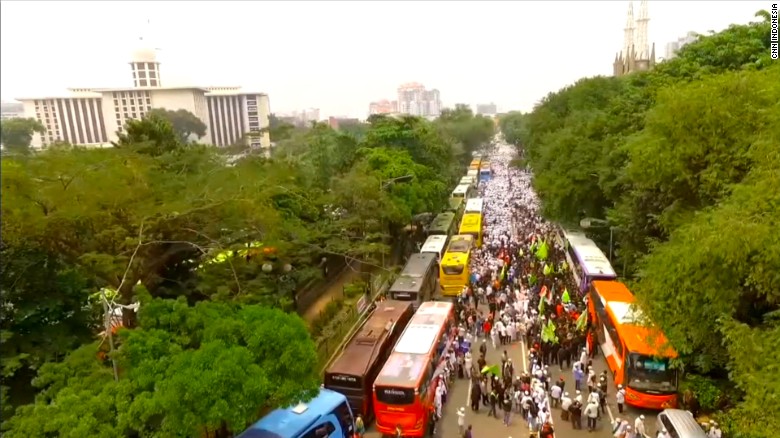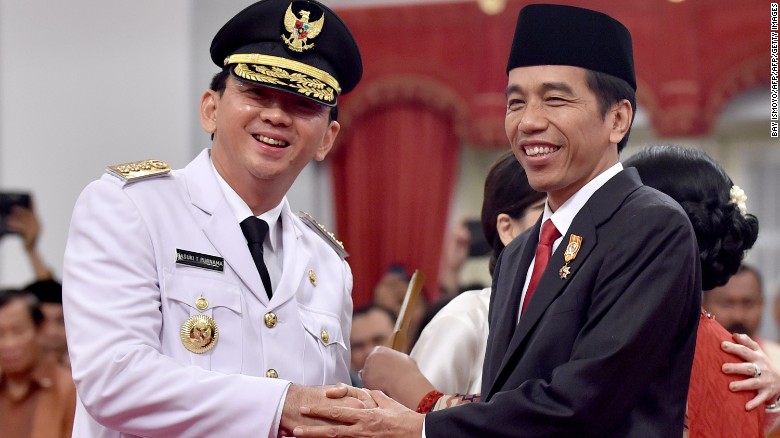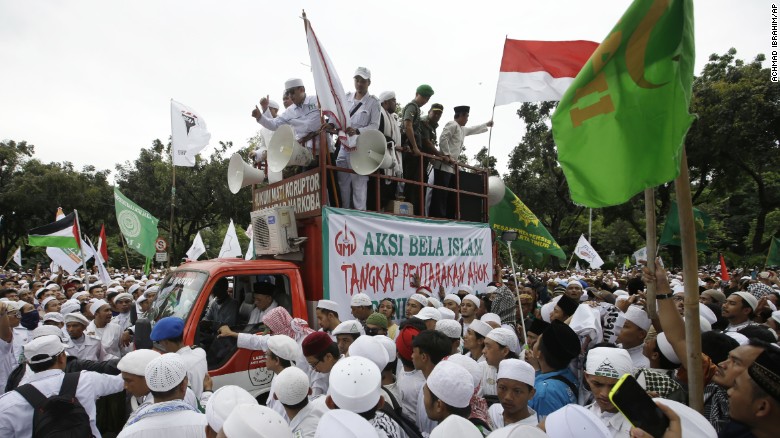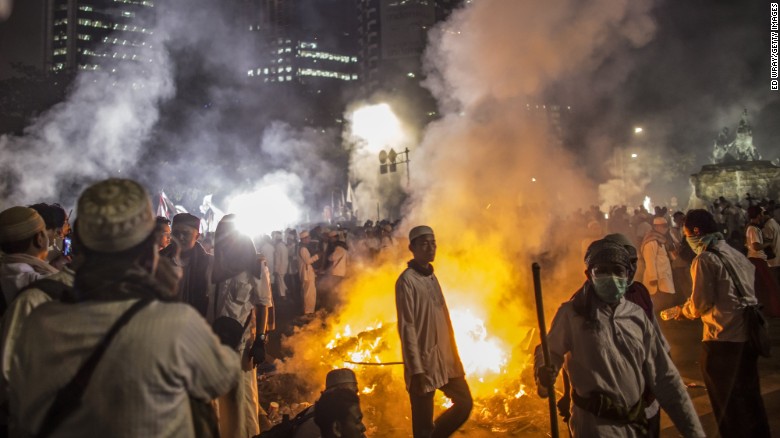Protesters and police clash in Jakarta over governor's alleged blasphemy
At least 91 people were injured in Jakarta on Friday as protesters demanding the ouster of the city's governor, who has been accused of blasphemy against Muslims, clashed with police, CNN Indonesia reported.
Gov. Basuki Tjahaja Purnama, commonly known as Ahok, is alleged to have insulted Islam by criticizing his opponents' use of a Quranic verse in a stump speech. Ahok is a member of Indonesia's Christian minority.
Late on Friday, dozens of protesters attacked police near the Presidential Palace as officers shot tear gas and water cannons overhead. The protesters called for Ahok's death, shouting "kill Ahok" and "kill Ahok for insulting Islam." Some also carried placards demanding his execution.
Earlier in the day, police estimated 200,000 people marched from Istiqlal Mosque in Central Jakarta to the Presidential palace. The march was largely peaceful.

The rally started at Istiqlal Mosque and ends at the Presidential palace.
As many as 18,000 police and military personnel were deployed ahead of Friday's protests, and an inner ring of approximately 100 armed military guards were placed outside the governor's residence, CNN Indonesia reported.
Police had called on demonstrators to exercise their right to protest and freedom of expression in a peaceful manner.
In a press conference held after the clashes, President Joko Widodo -- also known as Jokowi -- promised legal actions against Ahok and demanded protesters to "go back to their home where they came from, orderly."
Widodo postponed a trip next week to Australia because of the unrest. He called Australian Prime Minister Malcolm Turnbull to inform him of his plans and instructed his foreign minister to arrange a new trip.
There are fears that ISIS and al Qaeda, through its Indonesian proxy Jemaah Islamiyah, could seek to foment violence.
During a November 1 discussion on the rally at the Wahid Institute, Sidney Jones, Jakarta-based director of the Institute for Policy Analysis of Conflict, explored the influence of foreign jihadists on the protesters.
She said jihadist-run accounts on social media urged sympathizers of these groups to fan the flame of jihad in Indonesia, the world's most populous Muslim nation.
However, there are no signs suggesting that Friday's clashes were associated with ISIS or al Qaeda.
Blasphemy claims
Conservative Islamist opponents say that Ahok, who is a Christian of Chinese descent, should not administer a Muslim-majority city.
They had previously quoted a verse from the Muslim holy book at a rally, which warns against Muslims allying themselves with nonbelievers.
In a campaign speech, Ahok told Indonesians that the religious verse did not prohibit them from voting for a non-Muslim. His interpretation of the text is what elicited protests and charges of blasphemy.
Ahok is a key ally of Jokowi and was his deputy when Jokowi was governor of Jakarta. Ahok is now the frontrunner in the 2017 gubernatorial race.

Indonesian President Joko Widodo with Ahok after the latter's swearing in as governor on November 19, 2014.
Jokowi has called for calm and is seeking support from Prabowo Subianto, his opponent in next year's presidential election.
Former president Susilo Bambang Yudhoyono, whose son is running against Ahok, made a speech two days ago calling for the governor to be prosecuted to placate the Islamist opposition and quell the protests.

Protesters gather on October 14, calling for Ahok arrest and imprisonment.
Insufficient action
There are suggestions that Jokowi's government isn't doing enough to buttress against Islamist hardliners.
When video of Ahok speaking out against the Quranic verse appeared online in October, there was widespread outrage from conservative, religious quarters, but at the time, critics say, the government did little to dampen down extremist reaction.
"Pluralist politicians, like President Jokowi, were silent," Jones wrote at the beginning of November.
"No one said, 'Let's stop this in it tracks.' Neither the President nor Vice-President did anything to try to cool tempers."
News Courtesy: www.cnn.com











